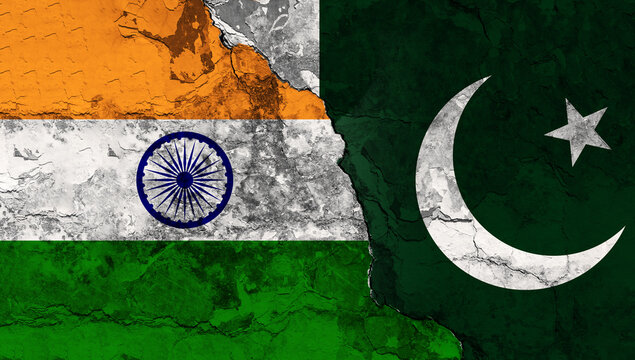By,
Miyuru Rasoj- Colombo
India-Pakistan Diplomatic Crisis Escalates After Pahalgam Attack
A sharp diplomatic standoff has erupted between India and Pakistan following a deadly militant attack in Indian-administered Kashmir, with both nations suspending visa services for each other's citizens and ordering expulsions of nationals and diplomats.The developments mark one of the most severe downturns in bilateral relations in recent years, raising concerns of further escalation.
Background: Pahalgam Attack Triggers Diplomatic Fallout
The crisis was triggered by a militant assault near Pahalgam, a popular tourist destination in Kashmir, on April 22, 2025. The attack left 26 tourists dead and several others injured, making it one of the deadliest incidents in the region in recent memory.
Indian authorities identified two of the suspected attackers as Pakistani nationals and one as a local Kashmiri, alleging links to the Pakistan-based militant group Lashkar-e-Taiba.
Prime Minister Narendra Modi condemned the attack, vowing to "identify, trace, and punish every terrorist and their backers" and promising consequences "beyond their imagination" for those responsible.
India's Measures: Visa Suspension and Expulsions
In response, India swiftly announced a series of punitive measures against Pakistan:
- Suspension of all visa services for Pakistani nationals with immediate effect. All existing Indian visas held by Pakistani nationals were revoked, effective April 27, 2025, with medical visas valid until April 29.
- Expulsion of Pakistani nationals: All Pakistani citizens currently in India were ordered to leave before the amended visa expiry dates, effectively giving most 72 hours to depart.
- Diplomatic downgrades: Defence, naval, and air advisors in the Pakistani High Commission in New Delhi were declared persona non grata and given a week to leave. India also announced it would withdraw similar advisors from its mission in Islamabad.
- Suspension of the Indus Waters Treaty and closure of the Attari-Wagah border crossing, further reducing diplomatic and economic engagement.
The Indian government clarified that long-term visas issued to Hindu Pakistani nationals would remain valid and are exempt from the revocation order.
Pakistan's Retaliatory Actions
Pakistan responded in kind, escalating the diplomatic standoff:
- Suspension of visas for Indian nationals: Islamabad halted all visas issued to Indians and expelled several Indian diplomats, including military and naval advisors, who were ordered to leave by April 30.
- Closure of airspace and trade: Pakistan closed its airspace to Indian-owned or operated airlines and suspended all trade with India, including transit routes to Afghanistan.
- Border closure: The Wagah border crossing was shut, and Pakistan warned that any attempt by India to halt or divert waters under the Indus Waters Treaty would be considered an "act of war".
- Diplomatic downsizing: The number of diplomatic staff at the Indian High Commission in Islamabad was reduced, mirroring India's actions in New Delhi.
Pakistan's National Security Committee rejected India's allegations of involvement in the Pahalgam attack, stating that no credible investigation or evidence had been presented and dismissing attempts to link Islamabad to the incident.
Implications and Outlook The tit-for-tat measures have brought diplomatic relations between the nuclear-armed neighbors to a new low, with both countries recalling diplomats, suspending critical agreements, and halting people-to-people contact.
Experts warn that while the current actions are largely diplomatic and economic, the risk of further escalation—including potential military responses—remains high. The situation remains fluid, with both sides maintaining a hardline stance and international observers closely monitoring for signs of further deterioration or possible mediation efforts. The immediate focus, however, is on the safe
of nationals from both countries and the broader impact on regional stability.

.
ReplyDelete